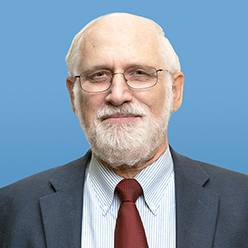Buried deep in the report of the Accountability Review Board convened by outgoing Secretary of State Hillary Clinton to examine the tragic events that took place this fall in Benghazi, Libya is the answer to why the U.S. ambassador was there in the first place. Ambassador Christopher Stevens, who lost his life in Benghazi, was there "to open an American Corner at a local school and to reconnect with local contacts." Apparently, a friendly local Libyan was opening a school to teach English with an "American Corner" as part of that effort. The ambassador thought it so important that he wanted to participate personally in its opening. It is, thus, not an exaggeration to say that Ambassador Stephens died in the pursuit of "public diplomacy."
Long ago—before the telegraph, telephone, radio, TV, and the Internet—diplomacy was a matter for very few people, almost entirely government officials, conferring over issues of mutual interest between two or more governments. Today, public diplomacy is often more important than traditional diplomacy. But what it is, how it is done, and why it is of paramount importance needs to be better understood. Simply put, public diplomacy is the effort to interest, inform and, hopefully, influence foreign audiences about the United States—its people, politics, and policies.
Public diplomacy's evil twin is terrorism. Terrorism, too, is usually outside the normal orbit of pinstripe suits and treaties inherent in diplomacy. Unlike simple murder and mayhem, its purpose is not primarily to kill people and destroy things. Rather, terrorism uses murder as a means to influence, through fear, those who survive. Thus, while public diplomacy seeks to reshape public opinion through information and exchanges, terrorism attempts to do so through violence and death.
That the U.S. government's public diplomacy effort nonetheless is so modest, its tools so few, and its budget so paltry will be one of the challenges the newly-nominated Secretary of State will find vexing. Ironically, Sen. John Kerry was, with most of his colleagues in Congress, a cause of this crisis. In 1999, following the odd bipartisan lead of Madeleine Albright and Jesse Helms, a law was passed to abolish the U.S. Information Agency, the agency dedicated exclusively to the effective pursuit of public diplomacy. In terms of budget and personnel, it was almost half the size of the State Department. But its mission was distinct, reflected in the skills of its personnel and its independence from other agencies. The naïve, arguably utopian, thought was that, with the Cold War over, public diplomacy could be merged into the State Department, saving a small sum in administrative costs.
Of course, this idea might have been refuted had policymakers bothered to ask two simple questions: First, is the Soviet Union and it adjuncts the only source of harmful lies and disinformation about the United States? Second, in the post-Soviet era, will the United States still need to interest, inform and influence key audiences throughout the world? The answer to the first was an emphatic negative. Just as clearly, the answer to the second was "yes."
A third question should have been whether the State Department, with its own essential mission to conduct diplomacy with other governments and multilateral institutions, is well-equipped to conduct public diplomacy as well. Most observers have come to the conclusion that these two subjects are, in fact, quite different. And while Foggy Bottom is good at the former, it's decidedly less so at the latter.
In the vacuum, and in many places it is close to a genuine vacuum, the military has attempted to fill in. But, despite formidable resources and very able personnel, the Pentagon's involvement is not—indeed, cannot be—a substitute for a broad and sustained public diplomacy effort on the part of the U.S. government.
We now have definitive proof that it was a terrorist attack that killed Ambassador Stevens and three of his colleagues. But the reason the ambassador was in Benghazi—the robust pursuit of public diplomacy—still needs urgent attention.
A proper memorial would be for our new Secretary of State to rethink, from the ground up, the best possible means to conduct our public diplomacy.
Robert Schadler is senior fellow in public diplomacy at the American Foreign Policy Council in Washington, D.C.
Want these sent to your inbox?
Subscribe
Benghazi Shows State Department Must Rethink Public Diplomacy
Related Categories:
Public Diplomacy and Information Operations
